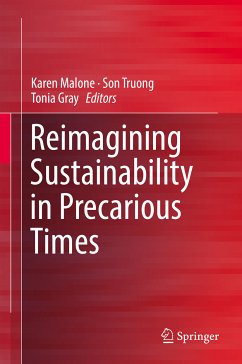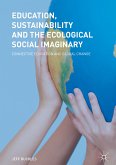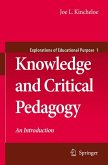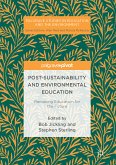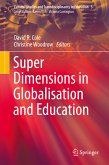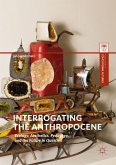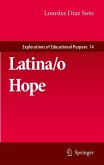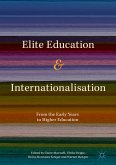This book reflects the considerable appeal of the Anthropocene and the way it stimulates new discussions and ideas for reimagining sustainability and its place in education in these precarious times. The authors explore these new imaginings for sustainability using varying theoretical perspectives in order to consider innovative ways of engaging with concepts that are now influencing the field of sustainability and education. Through their theoretical analysis, research and field work, the authors explore novel approaches to designing sustainability and sustainability education. These approaches, although diverse in focus, all highlight the complex interdependencies of the human and more-than-human world, and by unpacking binaries such as human/nature, nature/culture, subject/object and de-centring the human expose the complexities of an entangled human-nature relation that are shaping our understanding of sustainability. These messy relations challenge the well-versed mantras of anthropocentric exceptionalism in sustainability and sustainability education and offer new questions rather than answers for researchers, educators, and practitioners to explore. As working with new theoretical lenses is not always easy, this book also highlights the authors' methods for approaching these ideas and imaginings.
"The book definitely makes an original contribution to the field. Most of the published work related to sustainability in science education does not draw on posthumanism, new materialism or feminist philosophies. I think this book is unique in its use of these theoretical constructs to make sense of sustainability practices in a range of diverse contexts. I think there is an urgent need for this book in the academic community and beyond."
Deborah Tippins, University of Georgia, College of Education
Dieser Download kann aus rechtlichen Gründen nur mit Rechnungsadresse in A, B, BG, CY, CZ, D, DK, EW, E, FIN, F, GR, HR, H, IRL, I, LT, L, LR, M, NL, PL, P, R, S, SLO, SK ausgeliefert werden.
Es gelten unsere Allgemeinen Geschäftsbedingungen: www.buecher.de/agb
Impressum
www.buecher.de ist ein Internetauftritt der buecher.de internetstores GmbH
Geschäftsführung: Monica Sawhney | Roland Kölbl | Günter Hilger
Sitz der Gesellschaft: Batheyer Straße 115 - 117, 58099 Hagen
Postanschrift: Bürgermeister-Wegele-Str. 12, 86167 Augsburg
Amtsgericht Hagen HRB 13257
Steuernummer: 321/5800/1497
USt-IdNr: DE450055826
Bitte wählen Sie Ihr Anliegen aus.
Rechnungen
Retourenschein anfordern
Bestellstatus
Storno

